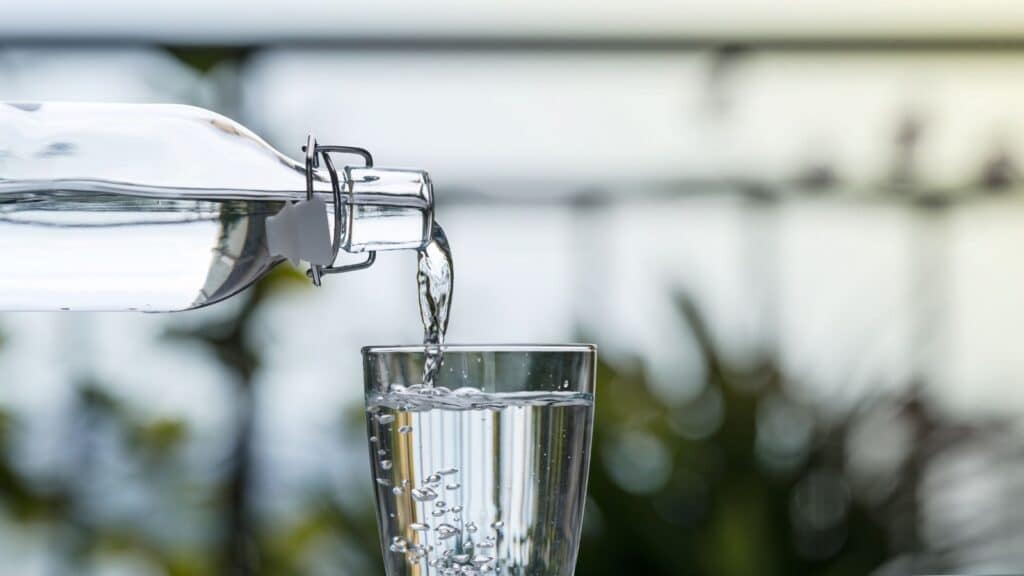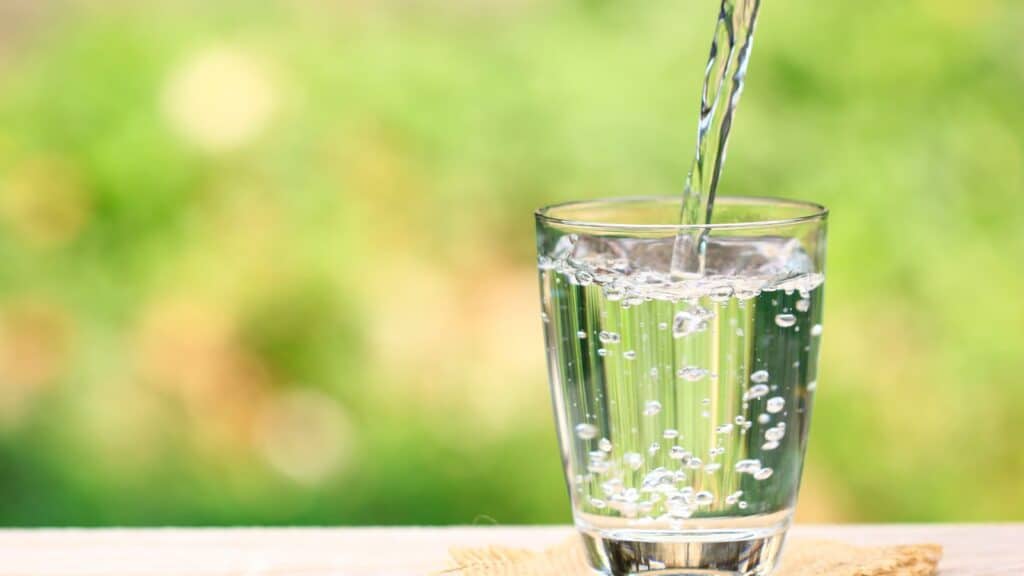Understanding the different types of water appropriate for babies is essential for their health and well-being. Babies require adequate hydration to support their rapid growth and development. This blog comprehensively explores the various water options, outlining the best choices for your infant’s needs.
Understanding Water Quality
Water safety standards ensure that the different types of water available for consumption meet specific health criteria. These regulations protect infants from harmful substances that can contaminate water sources. Parents must understand these standards to choose the safest water for their babies.
- Prevention of Illness: Clean water shields infants from bacteria and viruses that can cause serious health issues. Their immune systems are not fully developed, making them more susceptible to infections.
- Supports Development: Adequate hydration with safe water contributes to the optimal development of an infant’s brain and body. It aids in nutrient absorption and digestion.
- Reduces Toxic Exposure: Selecting water that complies with safety standards minimizes the risk of exposure to toxins like lead and nitrates, which can interfere with an infant’s growth and cognitive development.
Types of Water Available
When it comes to hydrating infants, not all water is created equal. Parents face many choices, each with its own set of benefits and considerations. This section explores the different types of water available, guiding you through the pros and cons to make informed decisions for your little ones.
1. Tap Water
Tap water offers a convenient and cost-effective option for hydration. It usually meets strict safety standards set by government agencies. However, chlorine and potential contamination from old pipes pose risks. Parents must ensure their locale provides tap water safe for infant consumption.
2. Bottled Water
Bottled water provides an alternative when tap water quality is questionable. It is portable and has undergone filtration. Yet, it can be expensive and the plastic bottles may contain substances harmful to babies. Parents should verify the source and safety of bottled water for infants.
3. Nursery Water
Nursery water, specifically designed for babies, undergoes additional purification processes. It often contains added fluoride, which can be beneficial but also controversial. This type of water supports the various nutritional needs of infants but requires parents to consider the pros and cons of fluoride content.
4. Purified Water
Purified water undergoes processes to remove chemicals and contaminants. It provides a high level of safety for infants, making it a preferred choice among parents. The rigorous filtration process ensures that purified water supports a baby’s health without the risk of exposure to harmful substances.
5. Spring Water
Spring water comes from a natural underground source and retains minerals that are beneficial to health. It is a different type of water with a taste that many prefer. However, given infants’ vulnerability to contaminants, it is crucial to verify its safety and treatment to ensure it is suitable.
6. Well Water
Well water, drawn from private sources, requires careful testing for contaminants such as bacteria, nitrates, and heavy metals. Regular screening and treatment are essential to make well water safe for babies. Parents must undertake these measures seriously to prevent health risks associated with untreated well water.

Water for Mixed Infant Formulas
Choosing the right type of water is crucial when preparing mixed infant formulas. The water used can significantly affect the formula’s safety and nutritional value.
Best Types of Water for Formula
Purified or nursery water often ranks as the safest choice when mixing infant formula due to their strict treatment processes. These waters ensure that harmful contaminants do not threaten an infant’s health. Caregivers should opt for these types of water to minimize risk and support the well-being of their baby.
Precautions When Using Different Water Sources
Caregivers must exercise caution when selecting different types of water for infant formula. It is vital to avoid water with high fluoride levels and untreated well or tap water, which may contain contaminants. Boiling water does not remove chemicals such as nitrates and lead; therefore, parents should always seek certified clean water sources for infant consumption.
Fluoride Content in Baby’s Water
Fluoride content in a baby’s water can positively or negatively influence dental health. Parents need to understand the recommendations and health implications linked to fluoride.
Recommendations and Health Implications
The American Dental Association suggests a certain level of fluoride in water to prevent tooth decay. Yet excessive fluoride exposure leads to dental fluorosis, which manifests as mild discoloration of a child’s teeth. Caregivers must strike a balance that maximizes benefits while minimizing risks.
Sources of Fluoride in Water
Different types of water contribute to varying levels of fluoride exposure:
- Tap Water: Many municipal water systems add fluoride to the public water supply for dental health benefits.
- Bottled Water: Fluoride levels vary; some brands may add fluoride, while others market low-fluoride options.
- Well Water: The natural fluoride content can differ significantly based on geographical location and requires testing to determine levels.
Guidelines for Boiling Water
Boiling can remove harmful bacteria and ensure the safety of water used for a baby, whether for drinking or mixing formula. This step-by-step guide explains when and how to boil different types of water for baby use properly.
- Identify When to Boil Water: Boil water before use if you rely on well water, during a notice of contaminated public water, or using water from a source without guaranteed safety.
- Choose Safe Water to Boil: Start with cold water from the tap or bottled water that meets regulatory standards if concerns exist about the safety of tap water.
- Boil Water Thoroughly: Place the water in a clean pot and bring it to a rolling boil for at least one minute to kill bacteria and viruses effectively.
- Cool Down Safely: Let the boiled water cool naturally to a suitable temperature before use or mixing with infant formula. Avoid adding anything to speed up the cooling process.
- Store Boiled Water Appropriately: If you do not use the boiled water immediately, transfer it to a sterile bottle or container, cover it, and store it in the refrigerator for up to 24 hours.
Choosing the Best Option for Your Baby
To pick the right water for baby use involves careful consideration of several factors. Parents must evaluate their age and health to ensure their baby receives the best hydration possible.
Age-Related Considerations
When choosing water for a baby, the relevance of the child’s age cannot be overstated. As babies grow, their bodies require mineral content and purity variations from the water they consume.
- Babies up to six months old require purified or distilled water for formula preparation to minimize exposure to impurities their bodies cannot yet handle.
- For babies over six months who begin eating solid foods, slightly mineralized water can be beneficial, offering a supplemental source of nutrients.
Health Considerations
The health status of a baby plays a crucial role in selecting the most suitable water for their consumption. Infants with particular health needs may require specialized types of water to safeguard their well-being and support their medical conditions.
- Infants with specific health conditions might need specially treated water to avoid exacerbating their condition. Consulting a pediatrician can help determine if regular tap water suffices or if a more refined option is necessary.
- Regardless of health, all babies benefit from avoiding water with high levels of fluoride and nitrates, which could harm their developing bodies.

Conclusion
Parents play a pivotal role in ensuring their babies receive the highest-quality water tailored to their developmental stages. Choosing the appropriate water can significantly impact an infant’s health, from the purified varieties required in early infancy to the mineral-rich options beneficial as babies mature.
It’s imperative that caregivers continue to educate themselves on the nuances of baby nutrition, including the latest research on water quality and its effects on infant health. A commitment to this ongoing learning journey will equip parents with the knowledge to make informed decisions that can set a strong foundation for their child’s growth and development.



